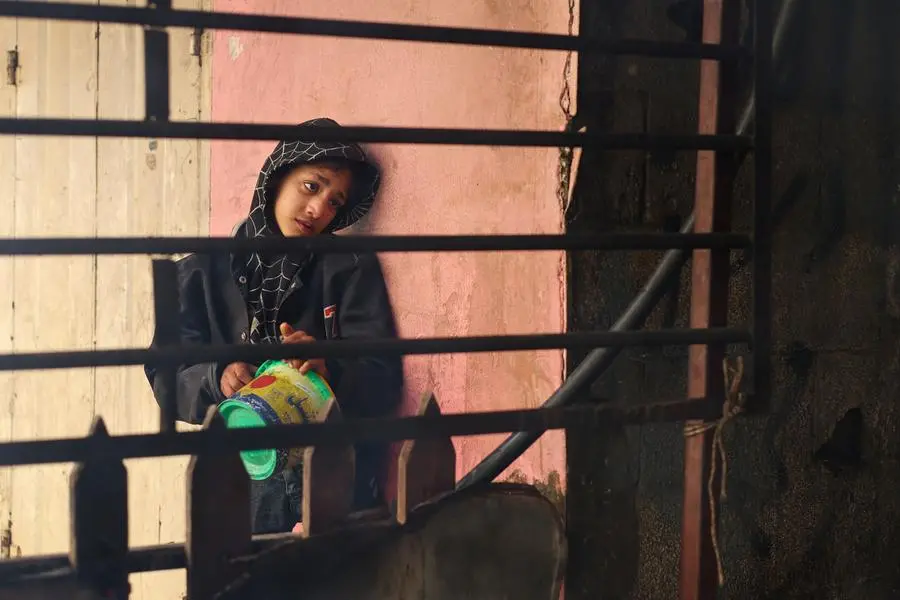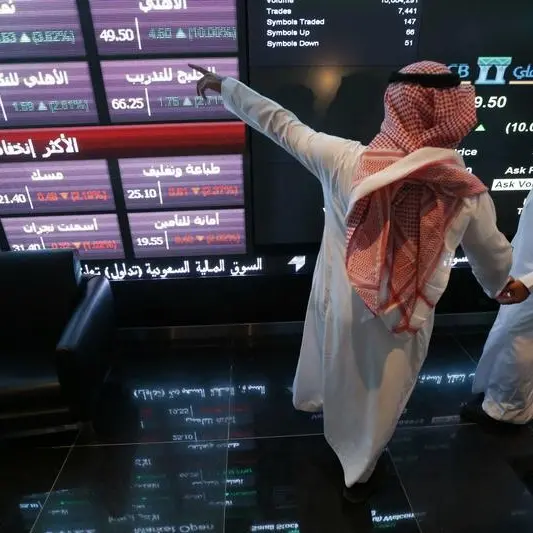PHOTO
“I feel gratitude and happiness,” says Emirati philanthropist Ahmed Al Falasi on being recognised for his efforts by His Highness Sheikh Mohammed bin Rashid Al Maktoum. In 2020, Falasi was awarded the prestigious Arab Hope Makers Award for his humanitarian work across the world. Three years later, as the Middle East grapples with one of the worst humanitarian crises, Falasi becomes an important reminder of why hope must be kept alive — because there are people like him who are forever willing to step outside their comfort zones to help the less privileged.
Looking back, Falasi looks at that title as a “form of encouragement that only motivates you to do better”. Today, he says, he carries on doing what he always set out to do with more wind beneath his wings. His work during the recent attack on Gaza is a case in point. “We fixed the field hospital. It was a huge one that would cost several million dollars,” says Falasi. The hospital has three operating rooms and 100 beds and intensive care units. Falasi also provided them with food baskets and dialysis clinics.
The pandemic predicted a completely different society for us, one where we would be more disconnected with each other. But two years later, it’s almost been a return to the normal we once knew. Could the disconnect, however, be real? What does philanthropy mean in contemporary society? Philanthropy, says Falasi, emerges from the idea of empathy which defines us as humans. “There are people whose ability to empathise with others leads them to make a big difference. It doesn’t matter what their contribution might be. You can give your time if you don’t have the money, you can give your presence to be with someone needy and, above all, you can extend your help to those who are ailing.”
It only helps that Falasi works in medical charity where practitioners extend their support voluntarily. Over the years, Falasi helped refurbish the Coast General Hospital in Mombasa and set up a kidney dialysis section and a newborn unit. His humanitarian work has changed the course of lives for the underprivileged in the city. He has also set up a school and orphanage in China.
This spirit of giving took root when Falasi was a child. His father was a taxi driver in Dubai, but was very “generous”. “When I was six or seven years old, I went to Abu Dhabi with him to deliver a consignment to the late Sheikh Zayed, who gave me Dh50 as a gift,” recalls Falasi. “When we returned, my father encouraged me to give a part of it to charity.”
And then there was the time when he was tasked with accompanying the late Sheikh Zayed to Sas Al Nakhl. A man on the roadside was busy planting trees and creating a boundary wall. “Sheikh Zayed stepped down from his car and helped him plant trees and build a shelter. Can you believe it? This inspired us to get down and join him.”
When Falasi became a naval officer later, his wife and he raised Dh70,000 for their neighbour’s kidney transplant. On another occasion a while ago, a doctor told them about two Palestinian children who’d lose their hearing abilities due to a bomb blast and needed Dh400,000 for treatment. “We had saved Dh307,000 to build our house. But we gave it away for the treatment of those children. Today, one child is a dentist and other a chemical engineer.”
His work with dialysis patients started when Falasi’s own mother died of kidney failure. “I started learning more about her condition. In one of my trips to Nairobi, we visited Mombasa and went to Mackenzie creek to the Coastal General Hospital. It looked like a graveyard — with foul smell, cats and dogs in the hospital, fungus on the wood, etc. When I visited the dialysis unit, I realised that it had two machines donated by a British bank 20 years ago and one patient had died just 20 minutes ago.”
This compelled Falasi to do something more for dialysis patients. He called the Minister of Health in Dubai, who informed him that dialysis machines had to be imported from Japan. “Soon, I was on the flight to Osaka to get the machines that cost $50,000, but I was offered to pay $30,000. I also needed to install the Reverse Osmosis (RO) machine with the dialysis machine and placed an order in South Africa for the RO unit. The Japanese worked overtime to deliver it to me in six days. Within two weeks, we created a dialysis unit in Mombasa for 600 patients,” he recalls.
Today, the hospital conducts mammogram screenings, monitors women’s and children’s health; some children actually weigh 700 gms during childbirth and Falasi’s team arranges their nutrition. “We built a hospital in Uganda and now the Amna Hospital in Zanzibar focuses on women and children. It has a telemedicine unit too. I was encouraged to talk to the Bill Gates Foundation for medical supplements and the gracious Melinda Gates not only gave me a 70 per cent discount on what I bought, she topped it with a 100 per cent free contribution from her side.”
As we wrap up our conversation, we ask what does it take to be a hope maker. “Think beyond your own needs,” he says. “If you genuinely put your mind to support a charitable cause, you will see how so many good people come out to help. It is how God’s order functions!”
Copyright © 2022 Khaleej Times. All Rights Reserved. Provided by SyndiGate Media Inc. (Syndigate.info).





















